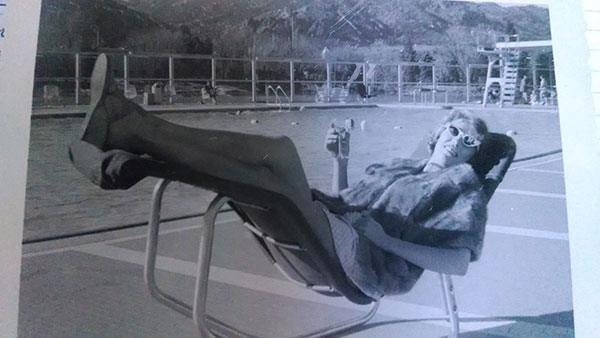February 2019 Message from the Executive Director
Pretty much I hate February, even in this most blessed and gorgeous climate. This past weekend was a double-whammy anniversary. On February 2, 2006, my mother died. She had enrolled in hospice the previous September, following a tough couple of years with COPD, and was the fourth of my teenage kid’s grandparents to die in a little more than 2 years. That fall, I’d completed my master’s degree in End-of-Life Studies (trying, unsuccessfully to receive extra credit for the lived experience of the previous couple of years!) and had started a job with the Colorado Center for Hospice and Palliative Care.
In October, my mother had tartly remarked, “You’re the only person I know who has to get a master’s degree to learn how to hold someone’s hand.” Ouch. But her last public outing, which was a mighty struggle in the December cold, was to see me “walk,” and she clapped the loudest and longest of all as I got my diploma and shook the university president’s hand. We had that kind of relationship.

She had a good run. Hospice gave her the time and energy to do what she needed: finalize affairs, make peace with hurt — and hurtful – friends, spend time with her beloved grandson and toothless cat, eat lots of chocolate, and celebrate one last round of glorious, painful holidays.
Three years later, on February 3, 2009, I was diagnosed with an early stage (good news!), aggressive (bad news!) cancer. For both reasons, my medical team lowered the boom – surgery, radiation, chemo, targeted biologic, the works. Midway through that ghastly year, the Colorado Center was denied a grant and I got laid off – almost. My prince of a boss cut his own salary and let me work for benefits until I could land a new gig. In a bad wig.
I share all this in the knowledge that my story is not unique. Almost everyone has their own stories of parents’ (or sibling’s, or spouse’s, or children’s) deaths and personal journeys of serious illness. I made it through mine only with the help of that master’s degree; an abundant contact list including top-flight clinicians, health system administrators, policy makers and lawmakers; support groups; and a sturdy loving cadre of fellow hospice volunteers; not to mention awesome friends and what was left of my family. I put it all to work, relentlessly, in the service of finding the best care possible for my mother, my kid’s other grandparents, and myself. And even so, it was darn hard.
It shouldn’t have to be. Getting the best care possible for anyone ought not to be the snipe hunt it continues to be. That’s why everyone here at the Institute is committed to doing everything we can to improve awareness and access to palliative care through education. Our exceptional online courses, our continuing collaboration with palliative care experts and visionaries, our annual National Symposium for Academic Palliative Care Education and Research – all are focused on that goal. Thank you for partnering with us in this imperative, meaningful work.




